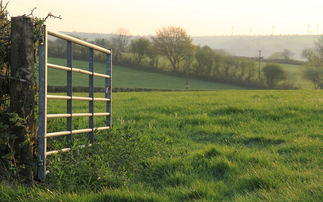African republic says it needs help from Green Climate Fund to achieve ambitious goal
The Republic of Djibouti on the Horn of Africa has become the latest country to submit its carbon reduction pledge to the UN ahead of this year's climate summit in Paris.
Djibouti committed this weekend to curb its greenhouse gas emissions by 40 per cent by 2030 compared with a business-as-usual scenario. But the government said the target could rise to 60 per cent if it received additional funding from the international community to support decarbonisation efforts.
The pledge was made through Djibouti's Intended Nationally Determined Contribution (INDC), which all countries are required to submit to the United Nations by October this year, detailing how they intend to cut carbon emissions and enhance climate resilience under a new international agreement.
Djibouti is one of the world's poorest countries as well as being one of those most vulnerable to the impacts of climate change, including extreme drought and temperatures, rising sea levels, and flash floods.
See our interactive map showing what countries have pledged so far for a deal in Paris
The country's government said it would invest more than $3.8bn (£2.4bn) in collaboration with the international community to achieve its carbon reduction goal, with the aim of becoming a showcase for sustainable development in the Red Sea region. It is already developing new "National Strategies" for the green economy, biodiversity and climate change to help meet its goals.
However, the government said that $1.6bn more funding from sources such as the recently launched Green Climate Fund would enable it to reduce emissions by 60 per cent by 2030, effectively returning the country to 2010 emissions levels.
According to the World Bank, drought in Djibouti between 2008 and 2011 caused a yearly economic contraction of about 3.9 per cent of GDP. However, the country has already invested in a wide range of resilience measures to reduce these losses, such as rehabilitating the dike protecting people from its most flood-prone dry river bed and updating its emergency plans.
As a result, floods in 2013 had a significantly smaller impact than in previous years, with far fewer victims and a shorter period of disruption to people's livelihoods.
Nevertheless, Djibouti's INDC predicts that even in an optimistic scenario where global temperatures rise by just 2ºC, climate change would cost the country more than $5bn between 2010 and 2060. This could rise to $9bn if temperatures rise by 4ºC to 5ºC.
This article was published as part of BusinessGreen's Road to Paris Hub, hosted in association with PwC.









